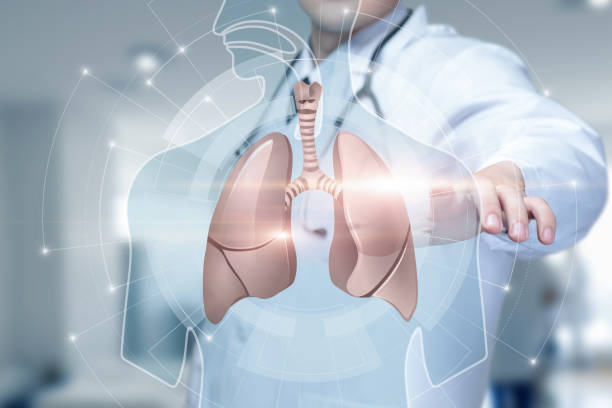

A Non-Drug Therapeutic Intervention
Firmly grounded in science, Pneemo® represents a significant advance in the field of non-pharmacological therapeutic interventions. By offering a natural and scientifically validated method to improve health, well-being and physical performance, Pneemo®, as a medical device, redefines the way in which psychological and physiological conditions can be treated, with a focus on the optimization of the heart rate and the oxygenation rate in the blood according to the desired objectives.
The Measured Benefits of Pneemo®
Research and studies conducted by our scientists indicate that 50% of users experience benefits after just 3 minutes of use, with an increase to 80% after 8 minutes and reaching 100% after 10 minutes.
Regulate Heart Rate
Pneemo® uses programmed vibrations to synchronize breathing rhythm, thereby regulating heart rate and normalizing bodily functions autonomously.
A drop in blood pressure
Regulates blood pressure by modulating the tone of the autonomic nervous system, particularly the parasympathetic system. Leading to vasodilation of blood vessels and a decrease in heart rate, which reduces systolic and diastolic blood pressure and improves cardiovascular homeostasis.
Cellular regeneration via oxygenation
Promotes cell regeneration by improving oxygenation, which stimulates cell metabolic and repair processes.
Pneemo is recognized in the following areas
Pneemo® effectively treats stress, anxiety, sleep disorders, physical performance, panic attacks, mild hypertension, asthma and concentration disorders. By optimizing diaphragmatic breathing, it promotes cell regeneration and reduces dependence on medication. Studies at many universities have confirmed its effectiveness, with satisfactory results for athletes and ordinary users.

Effective in combating stress
Scientifically, slow breathing activates the parasympathetic nervous system, often called the “rest and digest system,” which counteracts the effects of the sympathetic nervous system responsible for the stress response. This parasympathetic activation induces a series of physiological responses that promote relaxation and reduce levels of the stress hormone cortisol. A study published in The Journal of Clinical Psychology demonstrated that regular practice of slow breathing resulted in a significant decrease in cortisol levels and an improvement in psychological well-being.
In addition, slow breathing helps regulate the heart rate and decrease the heart rate, which contributes to a reduction in physiological stress. Neurobiology research shows that this practice positively influences brain structures involved in the regulation of emotions, such as the amygdala and the prefrontal cortex. By promoting deep and controlled breathing, cardiac coherence is improved, a state in which heart rate variability is optimized, and which is associated with better management of emotions and increased resilience to stress.
In addition, respiratory regulation mechanisms can also impact the perception of stress. Slow breathing can reduce symptoms of hyperventilation, which often accompany episodes of acute stress and exacerbate feelings of anxiety. Correcting these imbalances improves the ability to manage stressful situations and maintain a state of emotional balance.
In short, slow breathing represents a scientifically-based approach to stress management. By favorably influencing the autonomic nervous system, hormonal regulation, and brain structures involved in emotion management, this technique offers an effective method to mitigate the effects of stress and promote better mental and physical health.

Reduces anxiety and hypertension
High blood pressure affects more than a billion people worldwide and often goes unnoticed due to the absence of symptoms. Slow breathing has shown promising results, not only in reducing blood pressure, but also in improving homeostatic mechanisms of blood pressure control, thereby reducing the likelihood of future hypertension. Correcting hyperventilation also helps to better control the cardiovascular and respiratory systems.

Promotes and Improves the quality of sleep
Pneemo® facilitates sleep and improves its quality by regulating heart rate and optimizing blood oxygenation. By inducing slow, controlled rhythmic breathing, Pneemo® activates the relaxation mechanisms of the parasympathetic nervous system, which reduces heart rate and blood pressure, thus promoting a state of calm conducive to falling asleep. In addition, this regulation of breathing and heart rate helps maintain depth and consistency of sleep, thus contributing to a better quality of rest and optimal regeneration during the night.

Improves performance
Pneemo® ensures better effort management, promotes faster recovery and increases the efficiency of the cardiovascular system. This improvement in breathing and blood circulation allows for better oxygenation of tissues, which increases endurance, reduces muscle fatigue and improves overall performance during physical activities.

Fight against addictions
Pneemo® has demonstrated its effectiveness in reducing and stopping addictions by optimizing oxygenation of the nervous system, thus improving autonomic regulation and strengthening impulse control mechanisms. By increasing the supply of oxygen to the brain, this medical device promotes better regulation of stress and anxiety, alleviates withdrawal symptoms, and helps individuals better resist temptations. Studies have shown that improved oxygenation and autonomic regulation with Pneemo® creates a supportive environment for overcoming addictive behaviors and making more thoughtful decisions.

Increases concentration
Heart rate monitoring improves attention and concentration. Studies show that heart rate control and relaxation techniques reduce disruptive behaviors in individuals, both adults and children, with attention deficit hyperactivity disorder (ADHD).

Felix Strobl - Neuroscientist
Neuroscientist Felix Strobl contributed to the development of Pneemo as an expert in the field of respiration. In addition to his scientific qualifications, he is also trained as a tenor and paramedic. His extensive expertise has facilitated the integration of the latest scientific advancements into Pneemo and strengthened the device's impact on respiratory and cardiovascular regulation.
Pneemo® at the FutureHealth Congress in Lausanne
The presentation of the Pneemo® Respiratory Metronome generated significant interest, highlighting its potential in the field of medical care. This event proved to be both informative and enriching, and we express our appreciation for the exceptional organization.


